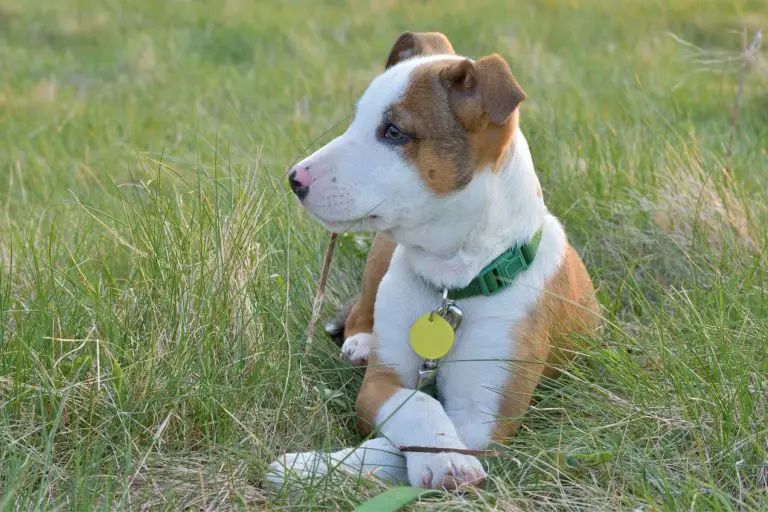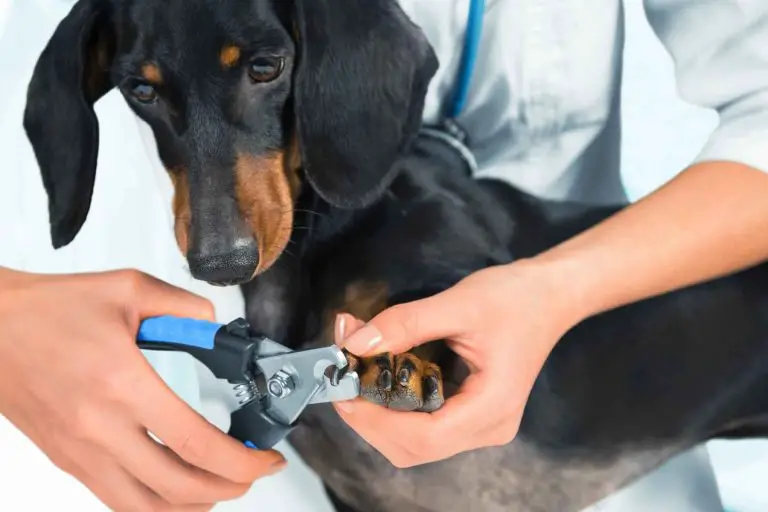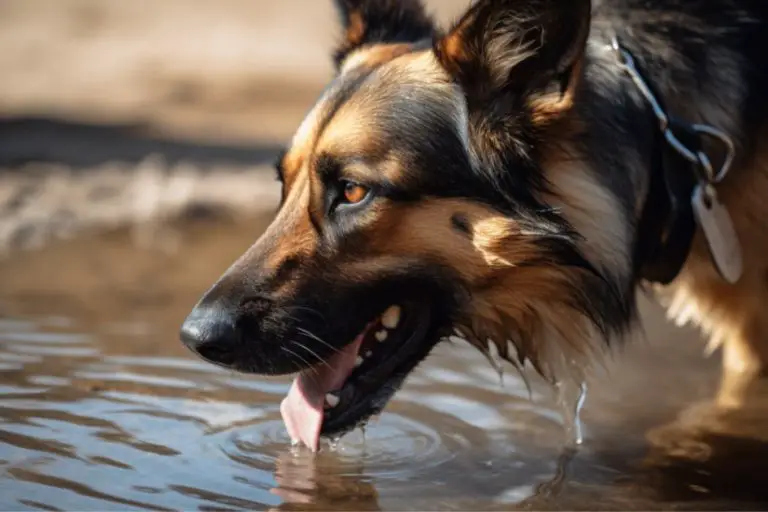Why Is My Dog Peeing in the House? (Understanding the Reasons)
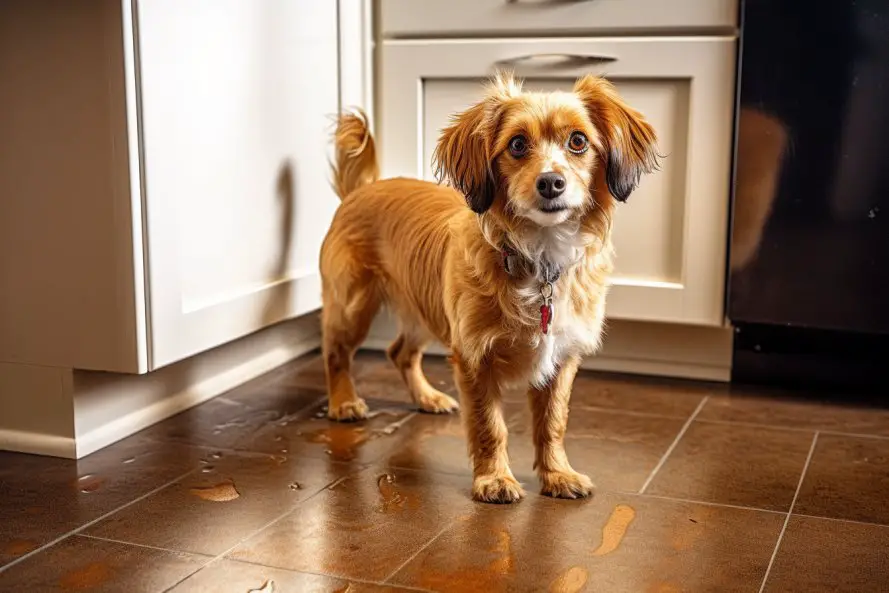
Many dog owners face the challenge of their beloved pets suddenly peeing in the house, and it can be a frustrating and confusing issue. As the pet parent, it’s essential to understand the various reasons that could cause this behavior to occur. By identifying the possible causes, you can effectively tackle the problem and promote a harmonious living space for both you and your four-legged family member.
Dogs may pee in the house for various reasons ranging from medical issues and stress to aging and territorial marking. It is important to delve into each of these possibilities and create a plan of action to tackle the root of the problem. Assessing the situation and identifying the factors contributing to your dog’s behavior are crucial in addressing the issue effectively.
Once you better understand what triggers your dog’s indoor urination, you can determine the best course of action to alleviate the problem. Whether it’s providing more frequent trips outside, adjusting their environment, or seeking veterinary care, finding a solution is achievable with patience and persistence. This article will explore the potential causes of your dog peeing in the house and offer suggestions on how to work towards finding resolutions.
Common Causes of Inappropriate Urination
Medical Issues
One common cause of a dog peeing in the house is medical problems. Urinary tract infections (UTIs) can cause an increased urgency to urinate, making it difficult for your pet to hold it in. Other urinary complications related to infection and disease include incontinence, kidney disease, and diabetes. Each of these can lead to changes in the volume, frequency, and ability of a dog to control its urine.
If you suspect a medical problem could be the cause of your dog’s inappropriate urination, consult your veterinarian for a thorough examination. Aging dogs may also be more prone to health issues that can contribute to incontinence, such as arthritis or dementia. Regular check-ups with a vet can help monitor and address any age-related health concerns.
Behavioral Issues
Aside from medical issues, behavioral problems could be another reason behind a dog’s unwanted urination habits. Anxiety and fear can make some dogs lose control of their bladder, especially in unfamiliar or stressful situations. Common triggers for anxiety and fear may include:
- Loud noises (thunderstorms, fireworks)
- Separation from owner
- New environments or changes in the household
- Unfamiliar people or animals
To address behavioral causes, it is essential to identify and address the underlying triggers to help your dog feel more at ease. Providing a consistent routine, using positive reinforcement, and consulting with a professional trainer or behaviorist may be helpful in managing and reducing anxiety or fear-related urination.
Age-Related Factors
Puppies and Young Dogs
Puppies and young dogs may pee in the house for various reasons. One common cause is that they haven’t fully developed their bladder control. Puppies usually gain better control over their bladders as they grow, but accidents can still happen while they’re learning.
In addition, puppies may not yet be fully potty trained. Consistent training and positive reinforcement are essential for helping a young dog understand where it is appropriate to urinate. Remember to be patient with your puppy during this process.
Senior Dogs
As dogs age, they may be more prone to accidents in the house due to declining physical and cognitive health. Senior dogs can experience reduced bladder control or mobility issues, which can make it difficult for them to reach a designated outside area in time.
Some health-related factors that can contribute to incontinence in older dogs include:
- Urinary tract infections
- Diabetes
- Kidney disease
- Arthritis
If your senior dog is suddenly experiencing accidents in the house, it is essential to consult with your veterinarian to determine the underlying cause and discuss appropriate interventions.
In summary, age-related factors can greatly influence a dog’s ability to control their bladder and maintain proper house-training habits. It is crucial for dog owners to consider the age and developmental stage of their pets to address and prevent in-house accidents effectively.
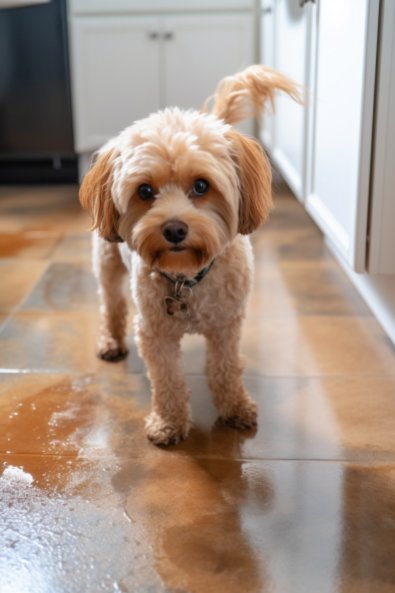
Sex and Reproductive Status
Male Dogs
Unneutered male dogs are more likely to exhibit territorial marking behaviors, such as peeing in the house. When a male dog reaches sexual maturity, usually around six months of age, hormones like testosterone may drive them to mark their territory. This can lead to peeing in the house, even if the dog has been previously house trained.
Neutering, the surgical removal of a male dog’s testicles, can help reduce or eliminate this behavior by decreasing the production of testosterone. In fact, studies have shown that neutering can reduce the occurrence of urine marking by up to 80% in male dogs. It’s important to note that earlier neutering may prevent the development of marking behavior altogether.
Female Dogs
Female dogs, particularly those that have not been spayed, may also experience changes in their urinary behaviors. When a female dog is in heat (reproductive cycle), she may urinate more frequently, and even mark her territory with urine. This is due to hormonal fluctuations and the desire to attract a mate. In addition, some female dogs may experience a condition known as hormone-responsive urinary incontinence, which can cause them to have involuntary urine leakage.
Spaying, the surgical removal of a female dog’s ovaries and uterus, can help reduce or prevent these types of behaviors. By spaying your dog, you not only eliminate the chances of an unwanted pregnancy but also the behavioral issues related to their reproductive cycle.
In conclusion, understanding the role of sex and reproductive status in dogs’ urinary behaviors is essential for addressing and preventing unwanted peeing in the house. Both male and female dogs can be affected, and spaying or neutering is a proven method to reduce or eliminate these issues.
Environmental and Situational Triggers
New Changes
Introducing new elements to your dog’s environment can lead to inappropriate urination. Some common changes include:
- New pet: Bringing a new pet, such as a dog or cat, into the household might cause territorial disputes or anxiety, resulting in your dog peeing in the house.
- New baby: The arrival of a new baby can be a huge change for your dog. They may feel stressed, overwhelmed, or even jealous, leading to accidents.
- New furniture: If you’ve recently rearranged or added new furniture, your dog may feel disoriented or confused. They might also mark the new items to claim them as their territory.
- Visitors: Having unfamiliar people visit your home can make your dog feel nervous, stressed, or territorial, which can trigger peeing in the house.
Stressors
Stress is another factor that can contribute to your dog peeing in the house. Some stressors may include:
- Loud noises: Sudden, loud noises like fireworks, thunder, or construction can cause stress and anxiety in dogs, leading to accidents.
- Separation anxiety: If your dog becomes too attached to you, they may experience anxiety when you’re not around. This can result in panting, pacing, and inappropriate urination.
- Change in routine: Unexpected changes in your dog’s daily routine, such as different feeding or walk times, can cause stress and susceptibility to accidents.
- Pain or discomfort: If your dog is experiencing physical pain or discomfort, they might not be able to control their bladder well, resulting in peeing in the house.
In summary, various environmental and situational triggers can lead to inappropriate urination in dogs. Identifying and addressing the specific causes in your dog’s case can help resolve the issue and create a more comfortable environment for both you and your dog.
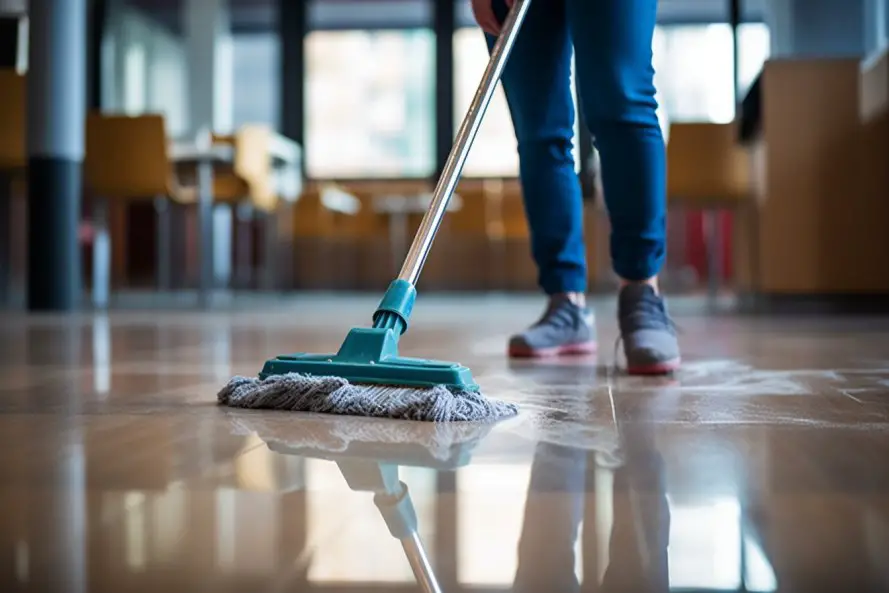
Types of Urination Issues
There are several common types of urination issues that may explain why a dog is peeing in the house. In this section, we will discuss three main categories: Territorial Marking, Submissive Urination, and Excitement-Induced Urination.
Territorial Marking
Territorial marking is a common behavioral issue in dogs. When a dog marks its territory, it releases a small amount of urine to communicate its presence and dominance to other dogs. This can occur both indoors and outdoors. Reasons for this behavior may include:
- Feeling threatened by a new pet or person in the home
- Changes in the home environment
- Increased stress or anxiety
To address territorial marking, it is important to identify and address the root cause of your dog’s stress or insecurity. This may involve:
- Providing a consistent and structured routine
- Reinforcing desired behavior with praise and rewards
- Seeking guidance from a professional dog trainer or behaviorist
Submissive Urination
Submissive urination is another type of urination issue that may cause a dog to pee in the house. This behavior is typically seen in younger dogs or those with a more submissive personality. Submissive urination can be triggered by a range of situations, such as:
- Scolding or punishing the dog
- Loud noises or sudden movements
- Meeting new people or animals
To help manage submissive urination, it is essential to remain patient and understanding with your dog. Some strategies to reduce this behavior include:
- Keeping greetings low-key to avoid overwhelming your dog
- Gradually exposing your dog to new experiences while maintaining a calm environment
- Encouraging confidence-building exercises, such as basic obedience training
Excitement-Induced Urination
Excitement-induced urination occurs when a dog loses control of its bladder due to overexcitement. This type of issue is more common in puppies and younger dogs. Some situations that may cause excitement-induced urination include:
- Reuniting with an owner after a period of separation
- Playtime or engaging in high-energy activities
- Encountering new or exciting stimuli, like toys or treats
To curtail excitement-induced urination, the following approaches can be beneficial:
- Remaining calm and avoiding overly enthusiastic greetings
- Rewarding calm behavior
- Gradually introducing new and exciting experiences in controlled environments
In addition to these behavioral issues, medical issues like urinary tract infections can also cause sudden accidents in the house. If you suspect a medical problem, consult a veterinarian for a proper diagnosis and treatment. By understanding and addressing the underlying cause of your dog’s urination issue, you can help them overcome this behavior and maintain a clean and healthy home environment.
Prevention and Training Techniques
House Training
House training is essential for all dogs to establish good habits and minimize accidents. Here are a few steps to help you train your dog:
- Maintain a consistent schedule with designated potty times outside.
- Reward your dog with praise and treats after successful elimination.
- Supervise your dog indoors, and use confinement or puppy playpens when unable to watch them.
Increasing the number of outside breaks, and making sure to take your dog out during these designated times will help reinforce the habit of peeing outside and diminish the probability of indoor accidents.
Managing Medical Conditions
Some dogs may have medical conditions that contribute to urinary accidents. Consult a veterinarian if you suspect your dog might have a health issue, such as:
- Urinary tract infection (UTI)
- Diabetes
- Kidney disease
If a medical condition is the cause of the indoor peeing, proper treatment will help resolve the issue and prevent future incidents.
Addressing Behavioral Problems
Behavioral struggles or anxiety might contribute to a dog peeing inside the house. Identifying and addressing these issues is crucial, as they can lead to other problematic behaviors. Possible methods for addressing behavioral problems include:
- Providing regular physical exercise and mental stimulation.
- Establishing routines and boundaries around the house.
- Desensitizing your dog to triggers or stressors.
- Consulting a professional dog trainer or behaviorist.
By understanding and addressing the underlying causes of your dog’s behavior, you can effectively prevent indoor accidents and maintain a happy and healthy relationship with your furry companion.
When to Consult a Veterinarian or Professional
It’s essential to consult a veterinarian if your dog’s house soiling issues persist or worsen. Certain medical conditions might cause your dog to urinate indoors, and only a professional can diagnose and treat these problems. Some common health issues that could lead to house soiling include urinary tract infections, kidney disease, and diabetes.
If your dog has been displaying other symptoms, such as excessive thirst, lethargy, or weight loss, it’s crucial to visit the vet as soon as possible. These signs might indicate an underlying medical issue. Additionally, if the peeing problem is coupled with any change in the pet’s behavior or physical well-being, seeking veterinarian advice is vital.
After a thorough examination, the veterinarian may prescribe medications for your dog. These will help to treat any medical conditions that might be causing the house soiling. Remember to follow the veterinarian’s instructions and administer the prescribed medication according to the recommended dosage and schedule.
However, if your dog is medically healthy, the house soiling might be a behavioral issue. In such cases, a professional dog trainer or animal behaviorist can offer valuable guidance to help rectify the problem.
In conclusion, it is important to consult with a veterinarian or professional when:
- The dog’s house soiling issues persist or worsen
- Your pet displays other symptoms, like excessive thirst or lethargy
- The problem is coupled with changes in behavior or physical wellbeing
- Medical conditions have been ruled out, and the issue is likely behavioral
Conclusion
Understanding why your dog is peeing in the house is essential for effective resolution. Whether it’s due to medical issues, behavioral factors, age-related factors, sex and reproductive status, or environmental triggers, identifying the underlying cause is key.
Consultation with a veterinarian or professional trainer may be necessary to diagnose and address the problem accurately. By implementing appropriate training techniques, managing medical conditions, and addressing behavioral issues, you can prevent indoor accidents and maintain a healthy relationship with your dog.
Remember, seeking professional help when needed is crucial for persistent or worsening issues, ensuring your pet’s well-being and a harmonious living environment.



